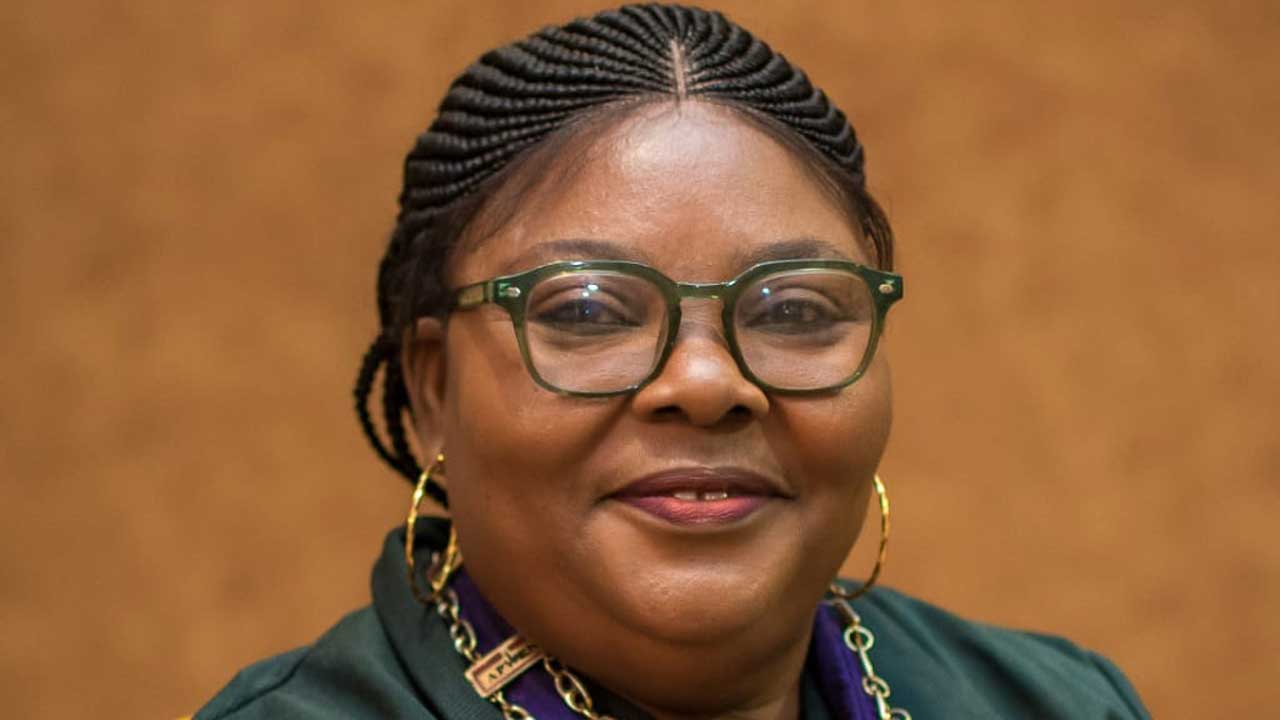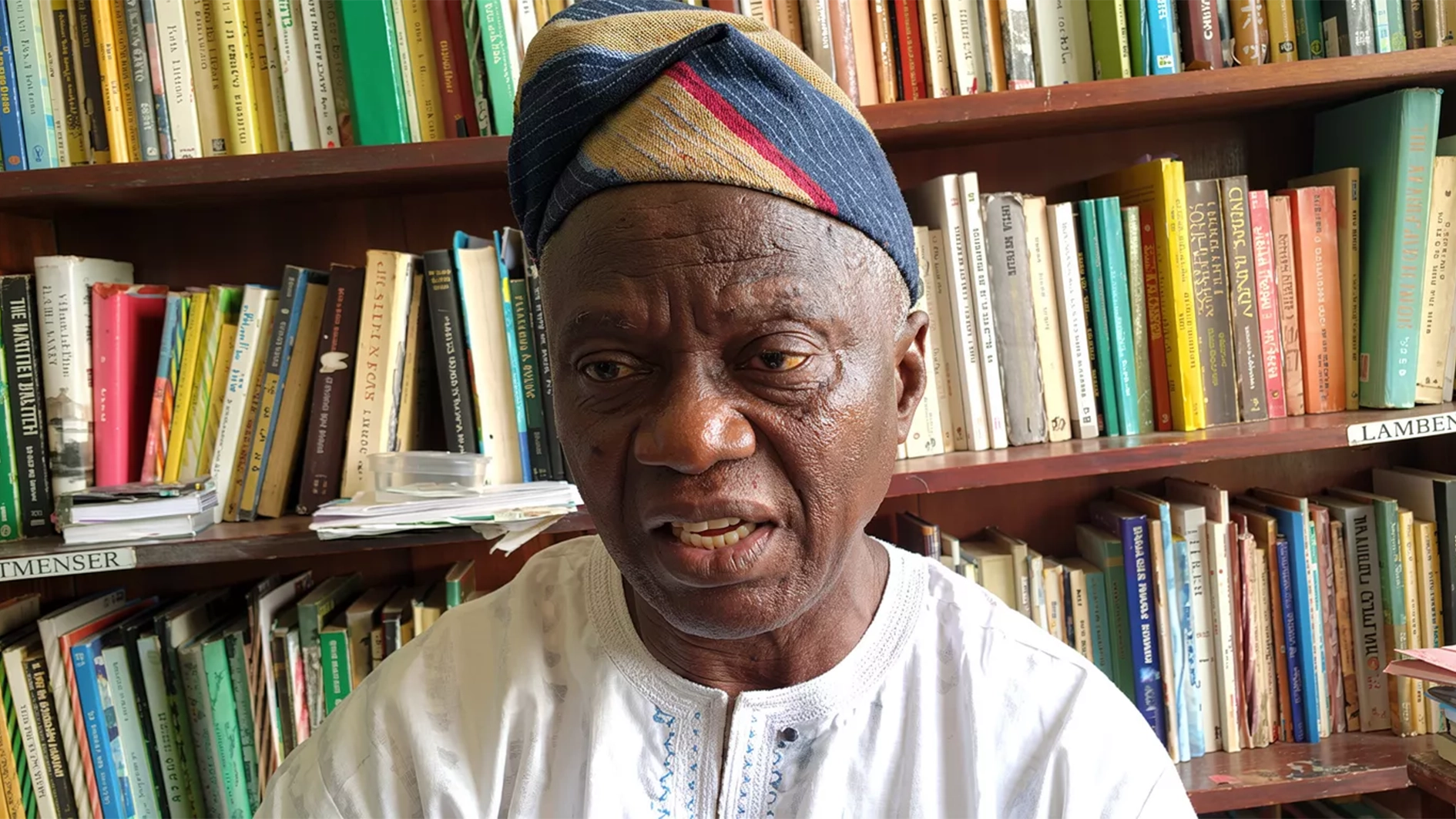
Dr. Elizabeth Eterigho is the 17th president, Association of Professional Women Engineers of Nigeria (APWEN). She spoke to VICTOR GBONEGUN on efforts to promote STEM courses, ensure better representation of women in the profession and other issues.
How have your members fared in the sector since engineering is considered a male-dominated profession? What can be done to eliminate gender gap and under representation, if they exist?
It is true that the males dominate the profession, however, the narrative is changing.
APWEN as an association is set to eliminate under-representation of women in engineering by sensitising the public right from school to recognise the relevance of engineering in socio-economic development of the country. Our members feel very strong and even stronger than some men in the engineering profession. There is no statistics that has proved that men are stronger than women nor has anything shown that in school, the men were separated from women when they were being taught.
If you go to some schools and check their records, you will discover that some of us were better than our male counterparts. Yes, l could say in my class during our school days, we were three female and three of us made 2.1 CGPA and out of five men, we had only one male that had 2.1 CGPA, the rest were 2.2 and third class.
What women in the profession are after is that those coming behind us should be encouraged and know that engineering is not only for men, the mentality should change as long as they are able to go to school, face their studies and qualify to be an engineer.
Currently, we are bridging the gender gap in engineering through continuous advocacy and programmes. We have ‘invent it, build it’ programme, which centres on bringing up the younger ones from primary schools and teaching them that engineering is not as difficult as they are seeing it.
We have put together simple hands-on experiments and from there, we pick the best students. About 10 schools have been granted scholarships through collaboration between APWEN and Nigeria National Petroleum Corporation (NNPC). APWEN also has embarked on a ‘child out’ for secondary schools, which enable us to take the students to industries and offices.
We also have a collegiate scheme for those that completed university education, which is a ‘town and gown’ programme to build capacity and bring in some organisation’s to bridge the gap between them and the workforce. Some students have got jobs through that platform.
We launched the ‘she techpreneur’, which caters for some people, who don’t want to do paid jobs. About 30 per cent of the jobs of the future are going to be technology-based jobs. We have programmes for primary, secondary and universities as well as those already working.
For the first time in the history of the country, APWEN has been able to develop a diversity and inclusion policy, which has been implemented by the President Muhammadu Buhari. About 11 female engineers out of 45 technical board members of NASENI were appointed.
Women are also coming up in positions of authority. In Niger State, we have a woman engineer as the first female Head of Service since the state was created. In Lagos, you have many women in government positions that are engineers. The number of female engineers has outnumbered the figure we had previously and so there is improvement.
Also, for the first time, Nigerian Society of Engineers (NSE) has elected its first female deputy president in its 63 years of existence. When you have people who are role models, the younger people will be willing to grow and the gender gap in the profession gets narrower.
In places of work, if you give a female engineer an assignment, l can assure you that the job will come out well. The Minister for Water Resources recently said that women in the ministry have been doing well and he was able to succeed through their support.
There are worries about inadequate patronage of local engineers in projects by the government despite existing orders like the ‘Executive Order five’ on promotion of local content in science, engineering and technology. What are your perspectives on this?
This has to do with advocacy. We must value ourselves. There are engineers, if you go abroad, most people in positions are Nigerians. We need to patronise ourselves.
The Council for the Regulation of Engineering in Nigeria (COREN) has set up a committee on implementation of Order five and other executive orders.
They are already working to ensure all the orders by the government are implemented. For us as professional engineers, all we need is to support and complement their efforts through advocacy.
Nigeria is confronted with infrastructural and insufficient technological deficit. How is APWEN promoting infrastructural development and growth?
APWEN with support from other organisations and individuals have built laboratories and more will be constructed because if you talk about APWEN, it involves science, STEM courses and there is no way to effectively teach those courses without a laboratory.
We were very concerned and started construction of the laboratories. The first set is in Bauchi, Anambra, Ogun, Kogi and Edo states. The ultra-modern science and technology laboratories are located across the six geo-political zones of the country.
Seven states in particular, two have been completed and five others are under construction. We partnered with Access Bank to start construction of six laboratories in the geo-political zone under the second phase of the project.
Science, Technology, Engineering and Mathematics (STEM) courses are believed to be difficult terrain for the girl-child.
What is APWEN doing to demystify the courses and make the fields more attractive?
Why the girl child feels STEM is difficult is because of mathematics and physics. Part of the programmes we do is starting from the primary level and ensuring that pupils are taught right. For example, if you want to do practical work, you must ensure that materials to be used are cut according to measurements. That is mathematics. We tell the girl child that STEM is not only meant for males. We encourage them to use materials to illustrate and teach science as well as tell their parents that culture is not a barrier to education.
The girl-child education in Nigeria, particularly in the North has been a big challenge. What is APWEN doing to attract more women and girl-child participation?
THE girl-child education in the North has been a challenge and that is why APWEN is reaching out to the girl-child through its chapters across the country. Before I became the president, I was the chapter chairperson in Minna, Niger State and we go to schools to educate them, as part of our advocacy programme through drama, seminars and speaking the dialect to the people so that they can understand the importance of education.
The first thing is that children don’t know their rights and we have the problem of culture. Most times, we have to go through the village heads to educate them that the girls are disenfranchised and denied their right in the villages or towns. We also organise quiz competitions, so that the girls can be encouraged to educate others, who are not educated, organise programmes to stop child marriage and street hawking.
We also selected them from schools and take them to a nearby industries and engineering firms, where they could see how things are done. We educate them on the work of the engineers like how the telephone is developed and what makes it possible to speak from one end and hear from the other.
Now we have increased enrollment in schools. In Niger State, we were able to have statistics of female children who are out of school. For instance, in a family, where you have seven children with three girls, be rest assured that two are out of school. That is about 75 per cent for those out of school. When we carry out programmes, we go back to check the impact and discover that there’s an increase in enrollment. We are now ensuring that the impact is sustained because enrollment is one thing, finishing is another.
There are calls for engineers to be involved in active politics. Do you support this position and what impact will it bring to the profession?
APWEN as a body supports involvement of engineers in politics because if we say engineers provide solutions to problems and refuse to go into politics, then whatever policy is made is binding on us.
But if engineers were into politics, they would be able to influence policies and lead Nigeria into progress. What we are asking the men to do is collaborate with us and allow our competence and skills to speak for us.
What has been the role of chemical engineers in tackling environmental challenges in terms of fulfilling of their mandate of managing the environment?
Our roles as chemical engineers come in various ways. In the environmental sector, it is the duty of the chemical engineer to look at how to control pollution in the South East, the soot in Port Harcourt and make provision for how to capture carbon emissions.
Chemical engineers design the process and look into materials that can capture carbon.
When talking about processing, how raw materials are transformed into physical products in factories and industries, it has to do with chemical engineering. We’re also helping stem importation. We have local raw materials that we can process and export, as well as use in the country.
Our refineries are down today because of zeolite that is not available but it can be sourced in Nigeria through local content and that is why NCMB was established.
The role of chemical engineers is not well known and Nigeria is yet to take advantage of the role and value of chemical engineers in industrial growth of the country.
As the 17th president of APWEN, what are your plans to positively impact the engineering profession?
My predecessor has done a lot of projects that brought great positive impacts and so those projects will continue, but we are going to add to what is on ground.
One of the new things we are planning is professional development. We have been developing the girl-child for over 37 years, now we want to develop the capacity for women engineers through training and retraining.
We are in the era of digital technology and there is a need to move along the trend. We feel that female engineers need to train in software development and applications in engineering. We are planning programmes like ‘fun-STEM’, which has to do with catching the attention of the girl-child in the teaching of STEM courses. The children are going to find out that they can learn STEM with fun.
We are also going to look at food security for the females. Making it easy for them to increase productivity through design and fabrication of agricultural tools.
APWEN also plans to set up capacity hubs for women, whereby they can make briquettes, which is a new technology for cooking. The briquettes are made from dry leafs, sugar cane peels and others. When a woman is empowered, she can easily send her child to school.
We are going to launch the Water, Sanitation and Hygiene (WASH) programme across the six geopolitical zones starting with Jigawa State.






